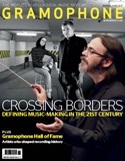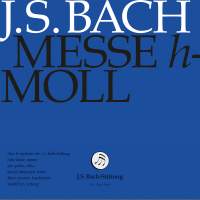Texte paru dans: / Appeared in: |
|
|
Outil de traduction (Très approximatif) |
|
|
Reviewer:
Jonathan Freeman-Attwood However, a tendency towards the geometric, even the generic, such as parading foursquare gestures in the ‘Crucifixus’, is perhaps not as frustrating as an inability to build tension in the choral lines. Both ‘Kyrie’ choruses are beautifully supple but momentum and direction become sapped as the movements progress. Where Brüggen or Gardiner would identify the organic growth in the counterpoint (the ‘Et in terra pax’ is always a good assessment point), Lutz is content to allow the music to chug forwards on its own terms. At times there is much to be said for this hands-off approach since it allows the soloists, especially in the duets, to find an agreeable character and equilibrium. Indeed, Julia Doyle and Alex Potter respond with persuasive readings throughout, and are especially memorable in their respective ‘Laudamus te’ and ‘Qui sedes’. The redoubtable Klaus Mertens is still extraordinarily unaffected in his Bachsinging but the voice is not what it was, and Daniel Johannsen is communicative but precious in the Benedictus. Compared to the technical and musical assurance of the finest European ensembles, the Bach-Stiftung are arguably better endowed in the wind than brass departments. The oboes and flutes are exceptional, but the trumpets are less well integrated into the ensemble and struggle to float and, instead, tend to peck. This performance still offers many fine solo and choral numbers but without, alas, the consequential dimension of recent releases of the Mass. These include Jonathan Cohen’s beautifully judged reading, Gardiner’s virtuoso ‘mathematical proof’ and Lars-Ulrik Mortensen’s lightly shaded and compelling canvas released last year. As a slightly troubling addendum, the string bass line often spills over into an over-reverberant rumble which should have been identified at post-production stage. |
|




